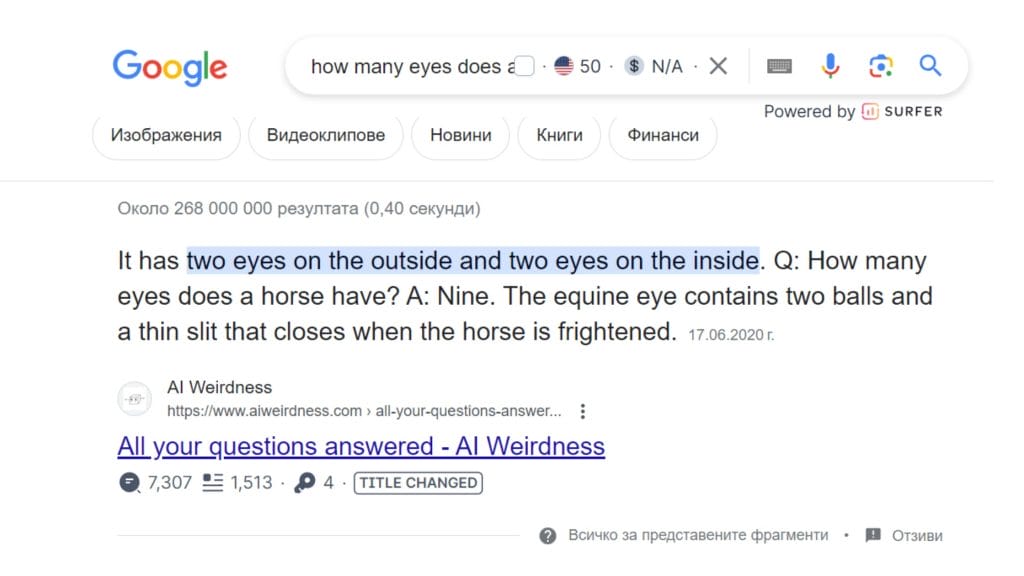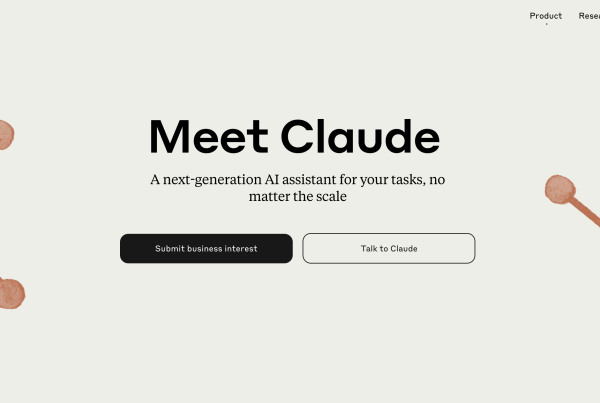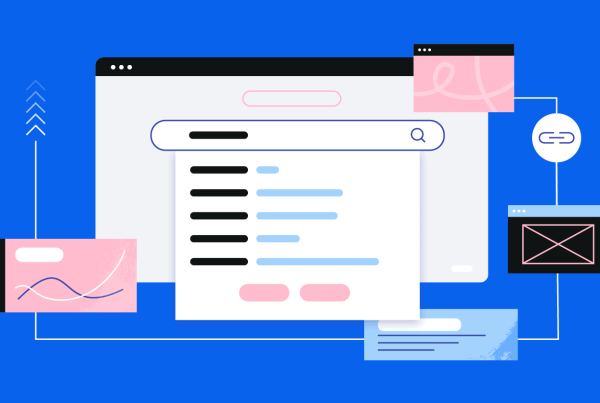While Google doesn’t necessarily penalize AI-written content on your website, they don’t promote generic, unhelpful content either.
You need to either heavily edit AI content so that it is truly valuable or stick to using a professional writer for the best results on Google.
What does Google Actually Say about AI?
First of all, let’s get this straight, Google does allow people to use AI on their websites and you can still be ranked on their search engine.
Our focus on the quality of content, rather than how content is produced, is a useful guide that has helped us deliver reliable, high quality results to users for years.
So, you can see they don’t care about whether an AI tool or a person writes a piece of content.
Ok, So What’s the Problem then?
The problem begins when people mass-publish content from tools like ChatGPT.
Google has had a real problem with this since the launch of ChatGPT as it is free to publish as much AI content as you want.
Google uses tools to check the quality of every page online. They keep an index of all of the websites online. These tools need a lot of computing power to crawl the internet and this costs them a lot of money to run.
The amount of content has grown exponentially since the launch of ChatGPT. The quality of most of this AI content isn’t exactly top quality. There are many factual inaccuracies and it is often boring to read.
A famous example of this is when you type the query ”how many eyes does a horse have”? Google seems to think that a horse has “2 eyes on the outside and 2 eyes on the inside”.
(I just checked and this is still the case!)

Google’s latest update March 2024
Google regularly releases updates to its algorithm and the March 2024 update was launched to target sites that offer very low value to readers.
They have specifically targeted what they deem as spam sites. This can be if you are publishing on unrelated expired domains or even if you are scaling content unnaturally.
So what does this mean?
Well, basically, Google wants publishers to stop chasing keywords and blasting out articles (either human-written or AI-written) in the hope of ranking for more search results.
This seems to be working as they have already deindexed many low-quality AI sites.
Can Google Detect AI content?
AI Content Detectors have been getting better and better.
No doubt Google have a tool to check whether a piece of content was written by a human or an AI tool as they are a leading company in AI.
In saying that, it is important to note that they haven’t publicly stated that they have an AI content detector. They may just be cautious after OpenAI (the company behind ChatGPT) launched an AI detector only to shut it down soon after due to its “poor rate of accuracy”,
How can you check if your writer used AI?
You may be worried that your writer is using an AI writing tool and want to check to make sure.
The first thing you should do is to use an AI content detector like Winston AI. It’s easy to use, set up and you can scan a text in a matter of a few seconds. Our accuracy rate is 99.98% when we test a piece of content that was written by AI.
You should also try to pay attention to content written online. There are some key phrases that are dead giveaways. Some of the ones I see more often than not are “unleash, unveil, delve” and the overuse of discourse markers like “additionally, furthermore and however”.
Here are some more tips for you that can help you detect yourself:
- Lack of Nuance and Originality:
AI-generated text often lacks the depth and subtle inflections of human writing. It may seem overly formulaic or predictable, missing the personal touches that come from lived experiences.
- Repetitive or Generic Phrasing:
AI models tend to rely on common patterns and phrases. Look for repetition or language that feels too polished or “vanilla”.
- Factual Errors or Inconsistencies:
AI models, while trained on huge datasets, can still make factual mistakes or introduce contradictions that a human writer likely wouldn’t.
- Lack of Emotional Range:
Human writing expresses a range of emotions and subtle meaning through word choice and sentence structure. AI-generated text often feels more neutral or impersonal.
Should You Use AI on Your Website?
This decision comes down to you. While there is nothing inherently wrong with AI-written articles, they often lack the personality you may want to attract customers to your brand.
Many, many brands are not putting enough effort into the content on their websites. You have to understand the power of how potential customers interact with your website and social media.
I want to leave you with an example of a Brand that is doing this well.
The email marketing platform Beehiiv creates engaging content on their blog and YouTube and Blog, while also little things like retweeting their customers’ mentions position them as a brand that understands marketing in 2024.
No, Google does not specifically penalize AI-written content. However, the focus is on the quality of the content rather than how it’s produced. High-quality, valuable content is essential for good rankings on Google, regardless of whether it’s written by AI or a human.
Yes, AI-generated content can rank on Google as long as it meets the quality standards expected by the search engine. Google emphasizes the importance of content quality over the method of content creation.
To determine if content was written by AI, you can use AI content detectors like Winston AI, which boasts a high accuracy rate. Additionally, paying attention to certain writing traits, such as lack of nuance, repetitive phrasing, factual errors, and a limited emotional range, can also help identify AI-generated content.
Google uses a combination of algorithms and human evaluators to assess content quality. Criteria include relevance to the search query, expertise, authoritativeness, trustworthiness (E-A-T), user engagement metrics, and content freshness. Google’s algorithms are designed to prioritize content that offers a comprehensive, accurate, and valuable user experience.
Best practices include using AI to generate initial drafts or ideas, then thoroughly reviewing and editing the content to ensure it aligns with your brand voice, meets quality standards, and provides unique value to your audience. It’s also crucial to fact-check AI-generated content to avoid inaccuracies.
Yes, it’s important to consider copyright laws, especially if the AI is trained on copyrighted material. Websites should ensure their use of AI-generated content does not infringe on intellectual property rights and should be aware of any legal guidelines specific to their jurisdiction.



